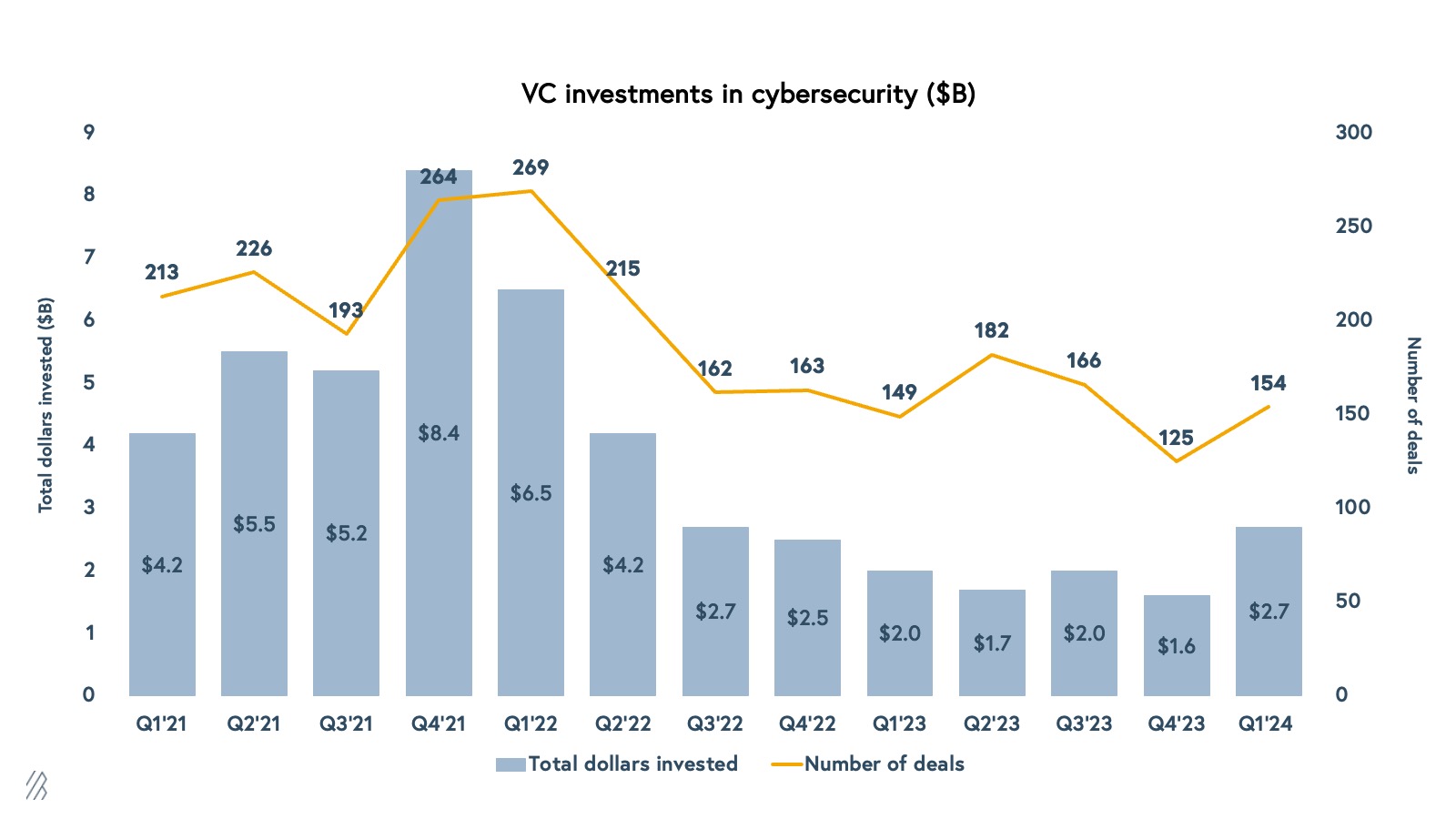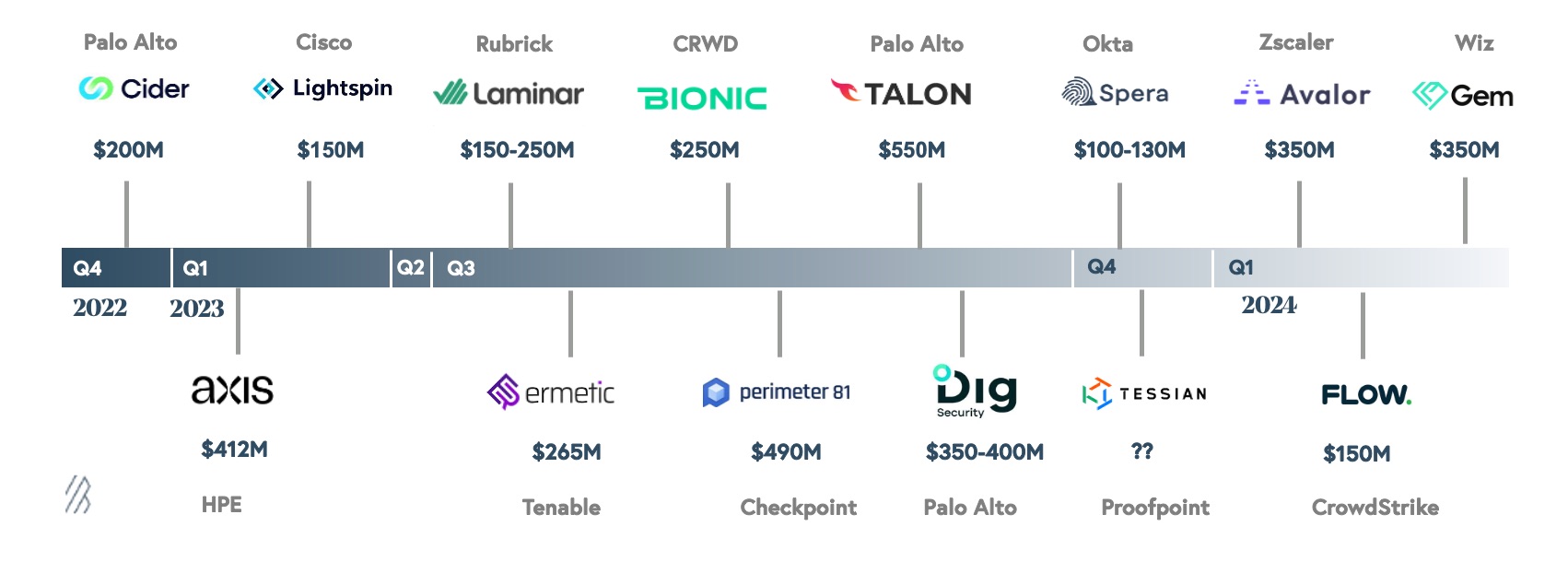The cybersecurity sector is experiencing significant momentum in both public and private markets. Public cybersecurity companies have reached record market capitalisations, with major players like Palo Alto Networks surpassing $100 billion.
Cybersecurity continues to attract strong investment, especially in later-stage startups. Although global cybersecurity funding has decreased significantly since its peak in 2021, there has been a recent resurgence in investment, with $2.7 billion raised across 154 deals in the first quarter of 2024.

Source: Bessemer’s “Cybersecurity Trends in 2024”
Five cybersecurity trends:
1. Consolidation of the cybersecurity market
Major cybersecurity players are starting to acquire other cybersecurity companies to build platforms – end-to-end solutions for their customers.

Source: Bessemer’s “Cybersecurity Trends in 2024”
2. Criminals exploit AI tools for malicious attacks
Attacks that harness AI are becoming trickier to evade - deepfakes have become far more convincing, while malicious phishing emails have increased by 1,265% since 2022. A noteworthy incident includes a Russian deepfake of the U.S. ambassador.
3. AI for cybersecurity defences
AI might exacerbate some cyber risks, but it can also strengthen the capabilities of security teams, underpinning automated tools that allow them to respond to incidents faster and more effectively. Unsurprisingly, the integration of AI into cybersecurity products is unfolding rapidly, but so early into its adoption, it’s difficult to say what AI’s most impactful role will be in improving cybersecurity.
4. Growing importance of identity management
As companies move their data to the cloud, harness SaaS applications, and bring third parties on board, identity management is becoming much more complex, requiring ever more sophisticated solutions. New products are springing up to counteract these challenges, but best practices have yet to be set in stone, and startups will play a pivotal role in ensuring a secure and seamless transition.
5. CISOs’ ambivalence about AI
CISOs aren’t as interested in AI as the number of AI-driven solutions on the market would suggest. In fact, many are opting to go back to basics, instead focusing on reinforcing their basic security hygiene through improving patching protocols and updating old and vulnerability-ridden code.






